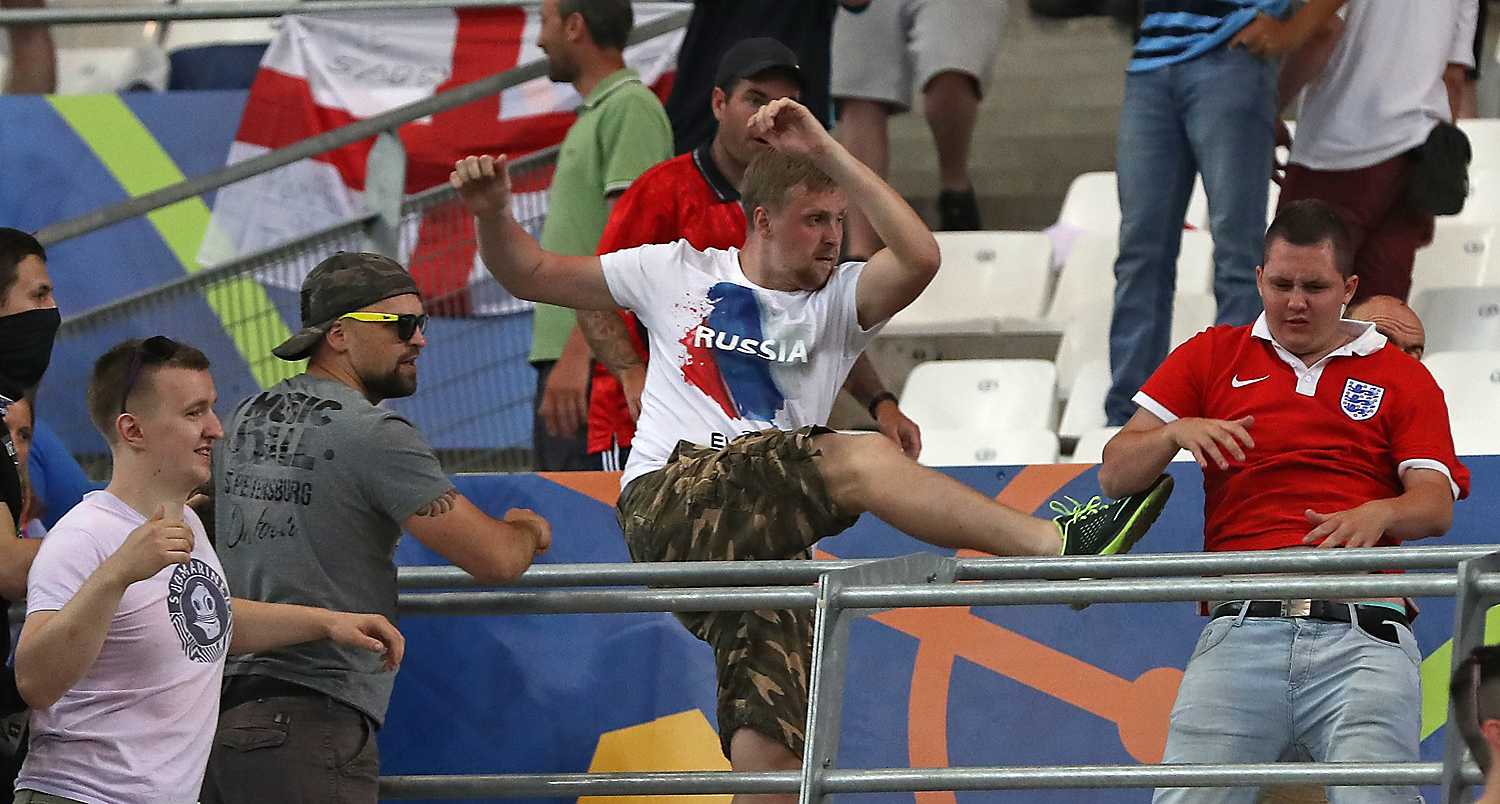
Russian supporters attack an England fan at the end of the Euro 2016 Group B soccer match between England and Russia, at the Velodrome stadium in Marseille, France, June 11, 2016.
APThe Russian national team made a fortunate but successful start to the Euro 2016 soccer championship, managing to tie with England thanks to a goal scored by veteran defender Vasily Berezutsky in added time. However, the attention of the mass media and their audiences was fixed not on the June 11 match in Marseilles' Stade Velodrome itself, but on the clashes between Russian and English fans before, during and after the game.
As a result of the disorder, in which almost 30 people were injured, UEFA issued Russia with a suspended disqualification and slapped the Russian Football Union with a 150,000-euro ($170,000) fine for the behavior of its fans inside the stadium, where Russian fans invaded one of the England sectors at the end of the match. In the event the violence is repeated, the Russian national team will be disqualified from the competition for real.
Russian fans have been at the center of large scandals on several previous occasions. During the 2002 World Cup, the mass viewing of the Russia-Japan match on a large screen in the fan zone on Manezh Square in the center of Moscow ended in tragedy on June 9. The crowd, enraged by the team's defeat, began breaking store windows and turning cars upside down.
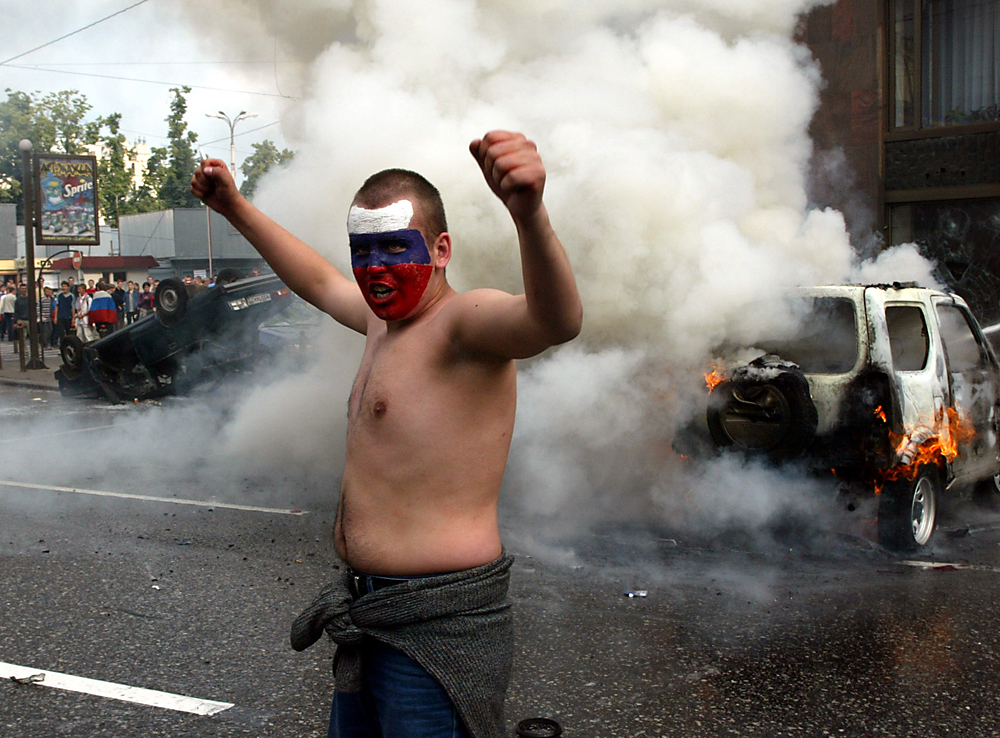 A football fan shouts in front of a burning car in central Moscow June 9, 2002. Source: Reuters
A football fan shouts in front of a burning car in central Moscow June 9, 2002. Source: Reuters
The mass disturbance right under the Kremlin walls continued for several hours. According to the official report, the fans' aggression was provoked by a commercial with a scene from the Coen brothers film The Big Lebowski, in which a person smashes a car with a heavy object. As a result of the chaos a 17-year-old schoolboy died and dozens of people were injured, including a number of people of Asian appearance.
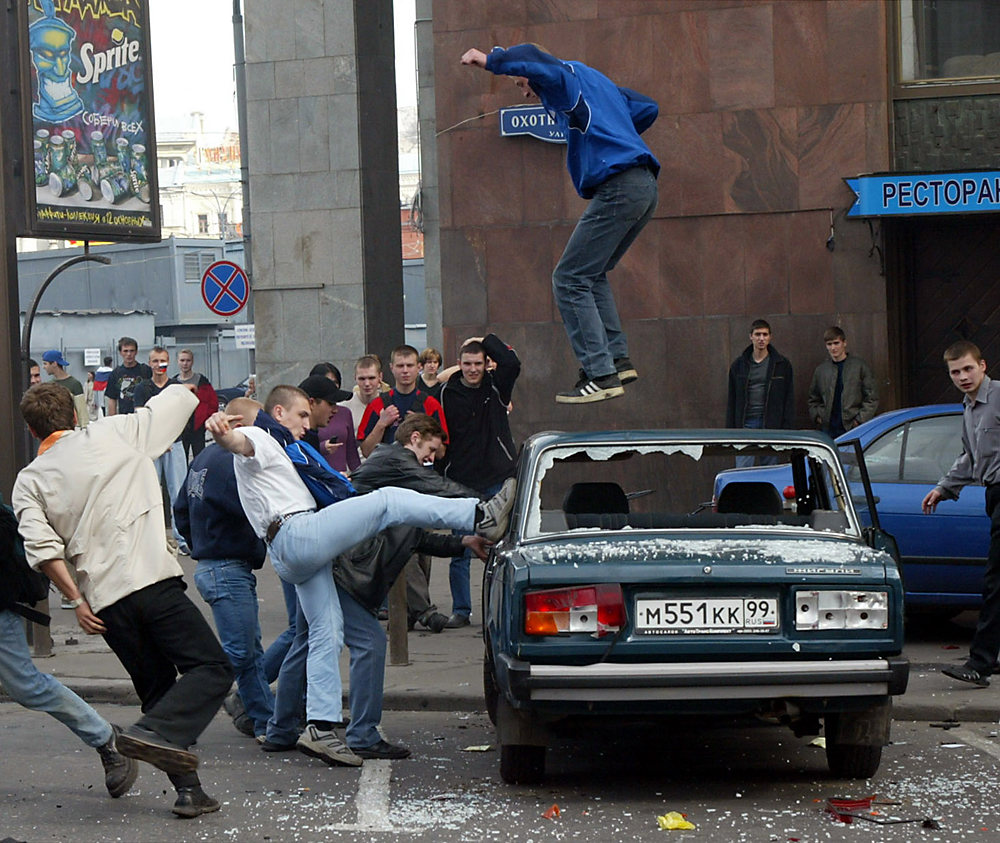 Football fans wreck a car in central Moscow, on June 9, 200. Source: Reuters
Football fans wreck a car in central Moscow, on June 9, 200. Source: Reuters
After this shameful event the authorities prohibited the viewing of sports games on large screens in the center of Moscow. Shortly afterwards they also introduced a law on the fight against terrorism, which significantly reduced freedom for mass assembly.
Eight years later, in December 2010, Manezh Square again became the venue for an explosion of fan hatred. This time the aggression was directed with more precision: against migrant workers from the North Caucasus and Central Asia.
The event was triggered by the Dec. 6 murder of 28-year-old Spartak Moscow fan Yegor Sviridov at the hands of a group of young people from the North Caucasus on the periphery of Moscow. Spartak fans were particularly indignant about the police having released five of the six perpetrators.
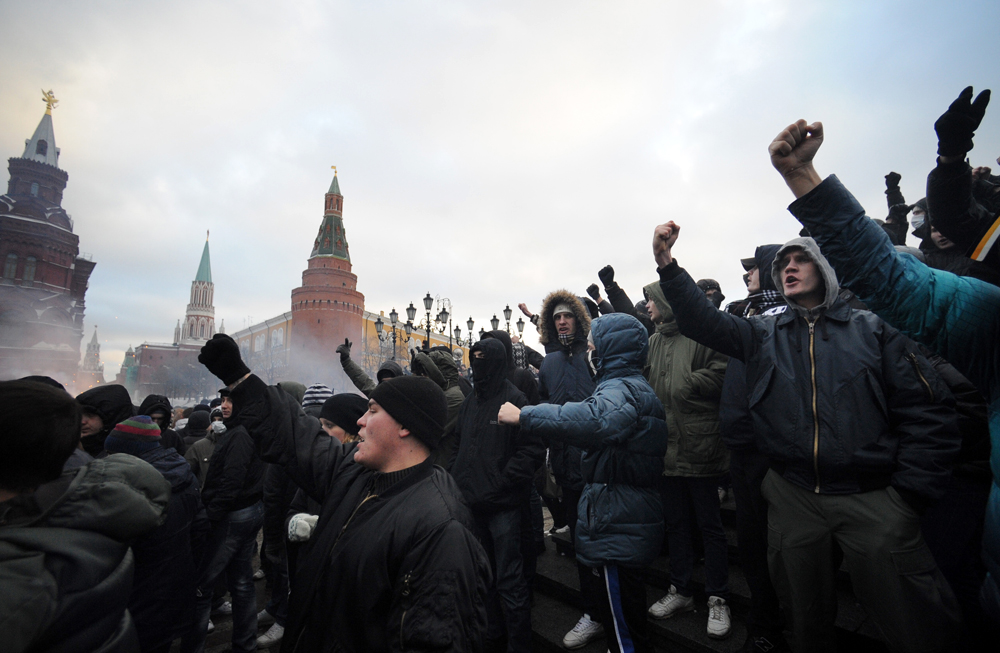 Protesters chant slogans as they gathered in central Moscow's Manege Square to remember Yegor Sviridov. Source: Maxim Shemetov/TASS
Protesters chant slogans as they gathered in central Moscow's Manege Square to remember Yegor Sviridov. Source: Maxim Shemetov/TASS
Organizing themselves via social networks, on Dec. 11 hardcore fans gathered in the center of Moscow. Shouting nationalist slogans, they threw bottles and rocks at the police, lit flares and launched fireworks. Local clashes between nationalist fans and Caucasians continued for several days not only in Moscow but also in other Russian cities.
As a result, the protesters obtained the prosecution of all the people linked to the murder of Sviridov and from that moment on, fans have been regarded as a powerful political force. It was nationalist fan groups that were responsible for the anti-migrant disorder in the Moscow commuter town of Biryulevo in October 2013.
Two years later Russian fans once against made front-page news across the world for their role in one of the most unpleasant episodes of Euro 2012, which took place in Poland and Ukraine.
On June 12, the day of the group-stage match between Russia and Poland, Warsaw witnessed a real street war with fights, police cordons, tear gas and water cannons as Russian fans marched through the city center to celebrate Russia Day. The procession, which was seen as being an unnecessary provocation on the part of the Russian fans given the historic enmity between the two nations, turned into a brawl with local fans, who, according to one account, were offended by the Soviet symbols that the Russians were demonstrating.
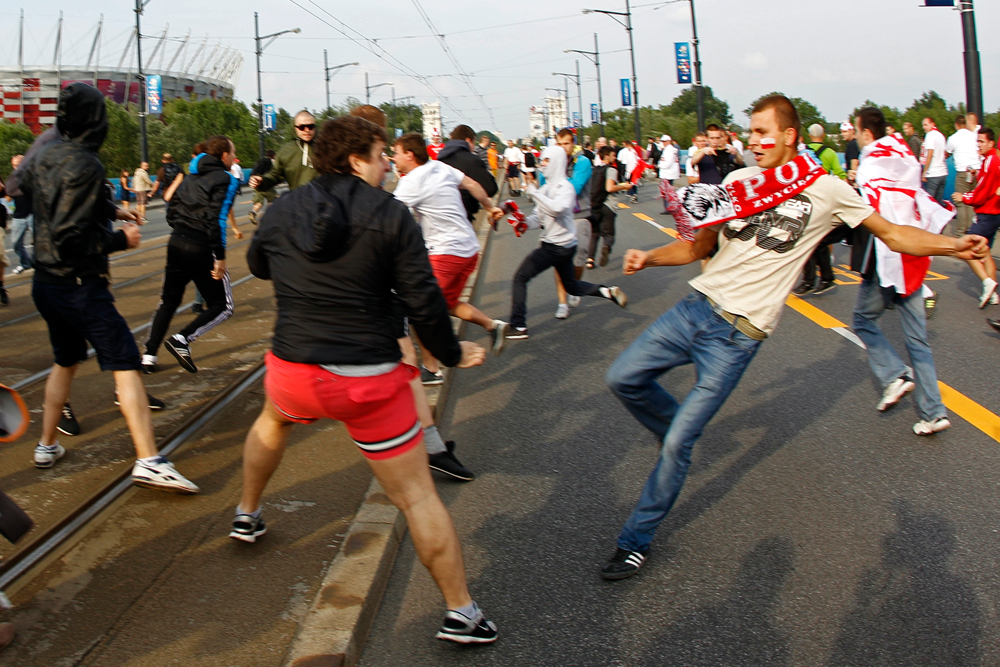 A Polish supporter (right) challenges Russian football fans in Warsaw June 12, 2012. Source: Reuters
A Polish supporter (right) challenges Russian football fans in Warsaw June 12, 2012. Source: Reuters
During the match both Russian and Polish fans insulted each other and clashed with the police. However the real battle occurred on the night after the match, which ended 1-1. According to the accounts of Russian supporters, the Polish ultras (radical fans) began hunting down Russian fans, attacking them indiscriminately in groups of 8-10 people.
As a result of that bloody night 140 people received heavy injuries. The police detained dozens of people. The Polish fans were fined and received suspended sentences and the Russian hooligans were deported.
All rights reserved by Rossiyskaya Gazeta.
Subscribe
to our newsletter!
Get the week's best stories straight to your inbox